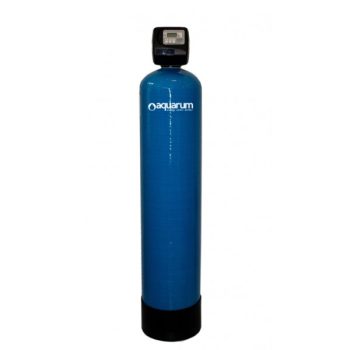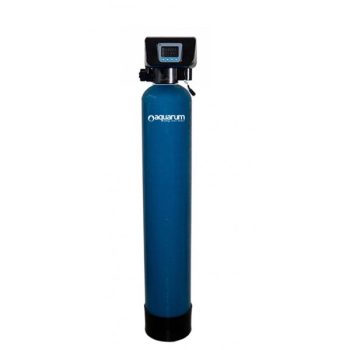Filters for hydrogen sulfide removal
Hydrogen sulfide, hydrogen sulfide, dihydrogen sulfide is a colorless, sweetish gas with an unpleasant odor of rotten animal organics. It is rarely found in its pure form in nature, only as a co-gas. In dissolved form, it is found in hydrogen sulfide springs, in the bottom layers of the Black Sea at a depth below 200 meters. The water used by humans comes from underground wells, stagnant wells, and muddy reservoirs. Special filters to remove hydrogen sulfide help to get rid of it.
-
Hydrogen sulfide removal filter
Aquarum CT-1054 RX Hydrogen sulfide removal filter
553 $ Add to cart -
Hydrogen sulfide removal filter
Aquarum CT-1252 RX Hydrogen sulfide removal filter
632 $ Add to cart -
Hydrogen sulfide removal filter
Aquarum CT-1354 RX Hydrogen sulfide removal filter
772 $ Add to cart -
Hydrogen sulfide removal filter
Aquarum CT-1465 RX Hydrogen sulfide removal filter
932 $ Add to cart -
Hydrogen sulfide removal filter
Aquarum CT-1665 RX Hydrogen sulfide removal filter
1,193 $ Add to cart
Effects of hydrogen sulfide on human life
Humans need endogenous hydrogen sulfide in microscopic amounts. Its deficiency contributes to the development of cardiovascular and nervous diseases. Excess H2S that enters the body from the outside is toxic. It causes nausea, vomiting, muscle disorders, pain in the digestive system, and death.
Water with dissolved hydrogen sulfide produces a slightly acidic reaction. It corrodes metal parts of the water supply system. When in contact with "wet" household appliances, it enters into oxidative reactions. The result is corrosion of steel, brass, and copper parts. When interacting with household chemicals under certain conditions, it can form more aggressive sulfuric acid. Hydrogen sulfide solution blackens silver and discolors copper.
How to detect hydrogen sulfide dissolved in water
The main sign is a rotten odor. But its source can be not only gas. There are several groups of bacteria that emit this odor. There are harmless and dangerous ones. The former live in drinking containers and coolers. Their waste products have a similar odor. The latter, when decomposing organic matter, release real hydrogen sulfide and other toxic compounds that cause intoxication.
If the water from your home source has acquired a rotten odor, have it analyzed in a laboratory. Keep in mind that hydrogen sulfide evaporates quickly, so a sample from the tap should be taken by a specialist who can conduct a rapid analysis or stabilize the water for sending to the laboratory.

Untreated tap water contains mechanical impurities, metals, bacteria, pesticides, chemicals in varying amounts that accumulate in the body and can cause various diseases.

Water treatment helps get rid of the unpleasant taste and odor that appear as a result of an increase in the concentration of inorganic and organic substances in the composition of such water.

Lithuanian water leads to the accumulation of scale on the heating surfaces of electrical appliances, consequently reducing their thermal conductivity. This accelerates appliance failure and increases energy costs.

It is known that the consumption of clean water is extremely important for maintaining health. That is why purified water is necessary for a person to protect himself from many diseases and to continue an active life without doctors and pills.
If the analysis shows the presence of hydrogen sulfide
If the laboratory analysis is positive, contact Aquarum, a company that manufactures water purification systems with special filters. These filters are filled with activated carbon granulate with enhanced catalytic characteristics. It effectively removes gas, chloramines, and iron compounds. Conventional activated charcoal cannot cope with this task.
There are two ways to purify water from dihydrosulfide:
- Physical - aeration. It is effective at low gas concentrations (up to 2 mg/l). When air passes through the water, the gas is oxidized and the odor disappears. It is rarely used due to the inconvenience of operation. The bulky system cannot be customized. It is impossible to control the H2S concentration and energy consumption.
- Chemical - carbon, ion exchange, chlorine, manganese filters.
The most effective is the carbon filter for hydrogen sulfide removal with a backfill of catalytic carbon and oxidizing materials. It operates in a dual mode of filtration and regeneration. "Aquarum selects a treatment system for each specific facility based on laboratory analysis. We develop and implement personalized projects for industrial enterprises.
Contact Aquarum for high-quality water treatment and purification systems!
own enterprise
customized solutions
operational experience
and installation








